Sen. Bernie Sanders takes control of Democratic race with resounding Nevada win: ANALYSIS
While votes continue to trickle in, it’s clear Sanders secured a convincing win.
Democrats may as well say the words now: Sen. Bernie Sanders, frontrunner.
While votes continue to trickle in, it’s clear that Sanders secured a convincing win in the Nevada caucuses on Saturday. The Vermont senator left the Silver State with a jackpot likely to land him a delegate lead -- with other campaigns agreeing he could be positioned to never surrender it.
But his journey to the nomination is by no means assured. Ahead, party insiders expect a bruising series of pitched battles over what the Democratic Party is, and how best to defeat President Donald Trump.
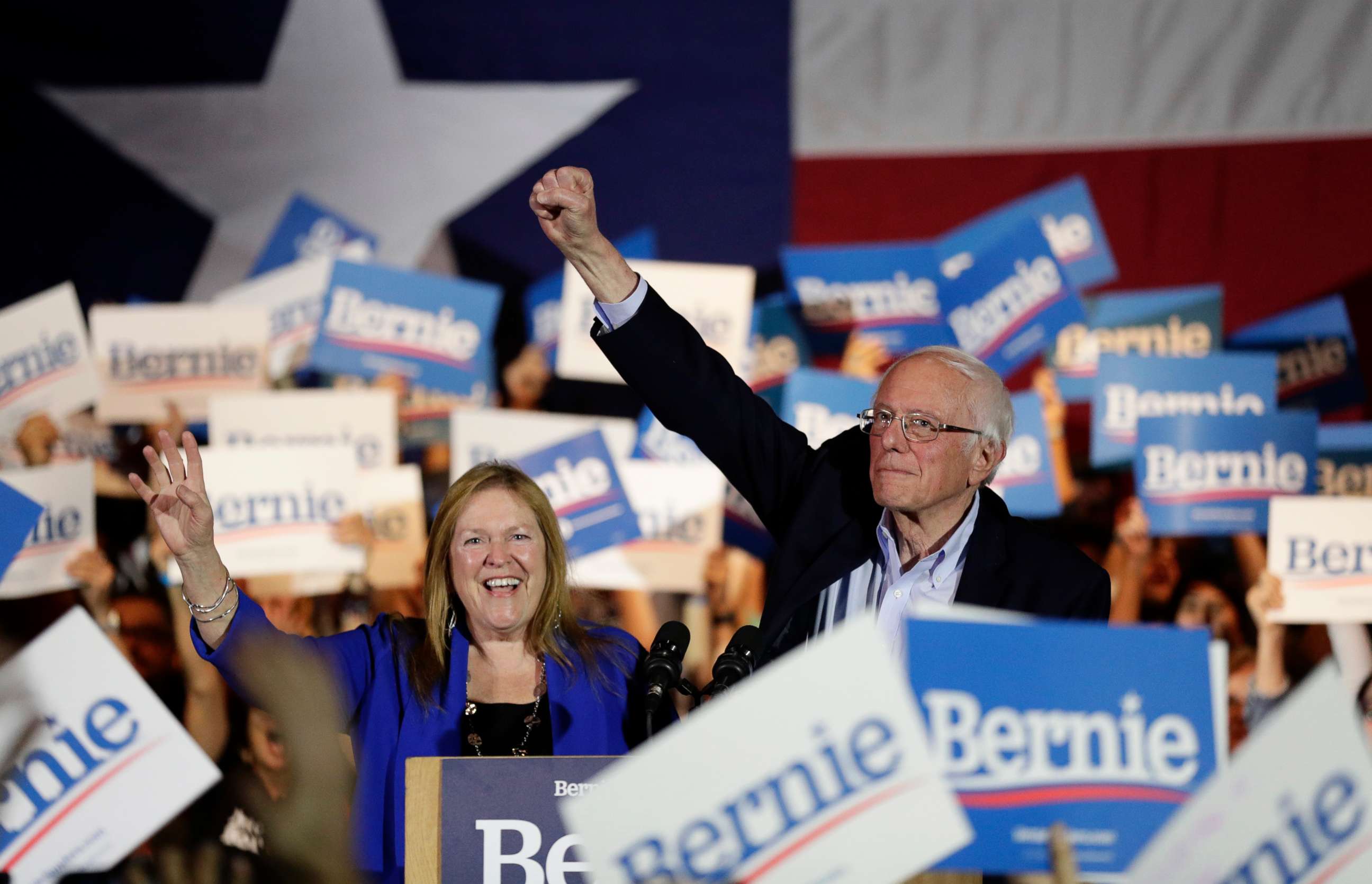
The campaigns of former Vice President Joe Biden and former South Bend, Indiana mayor Pete Buttigieg saw glimmers in Nevada’s numbers that give them hope.
Next weekend brings one more early-voting state offering the chance for breakthroughs, with former New York City mayor Michael Bloomberg -- armed with an inexhaustible cash reserve is standing on the other side of Super Tuesday.
But on Saturday, Sanders blew away a half dozen major rivals to win the first voting state to feature significant diversity. Powered by a hyper-loyal base, and also a bit more than that, he has now won the popular vote in all three states that have voted, and appears better positioned than all of his rivals to rack up wins in the delegate-heavy states that loom on Super Tuesday and beyond.
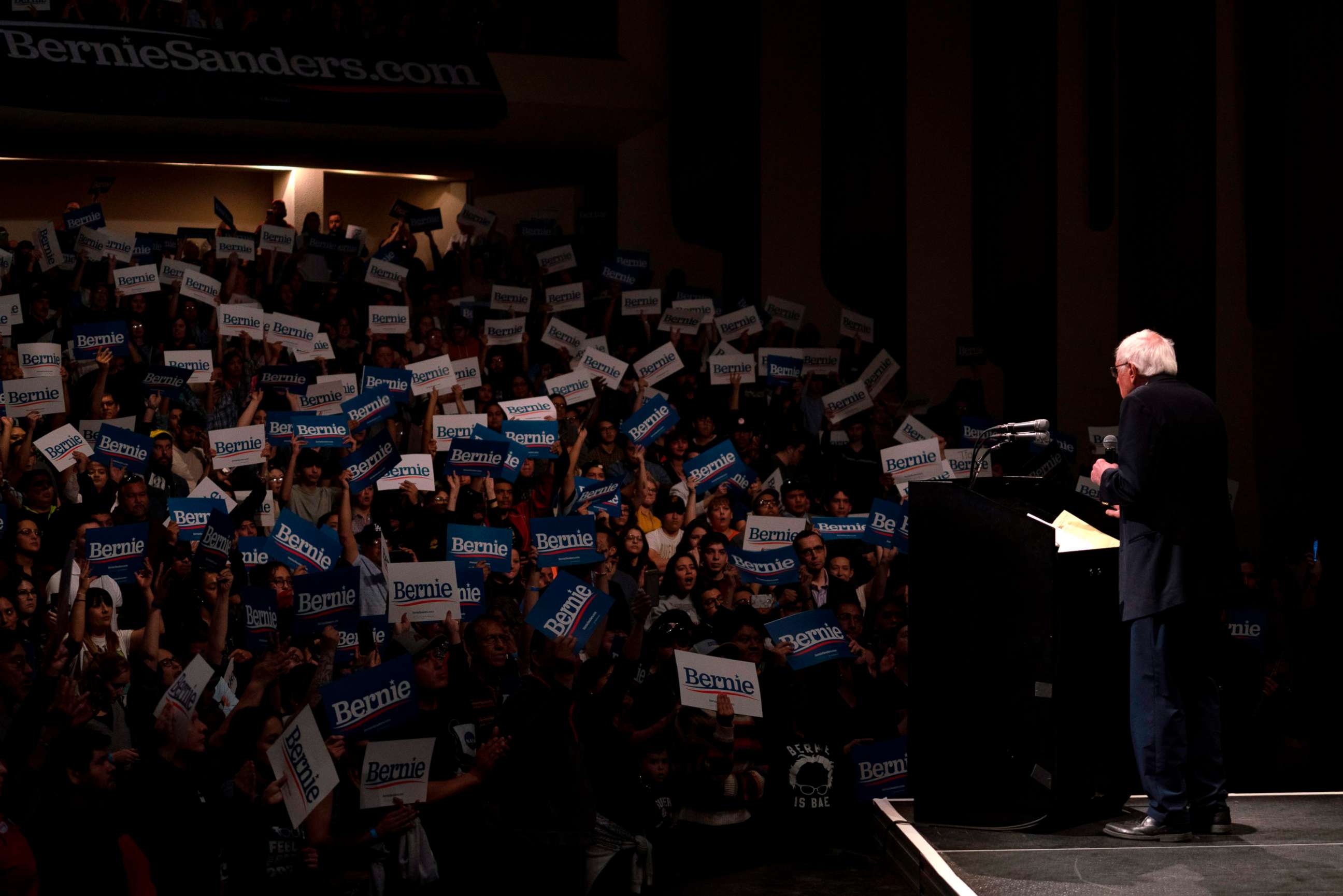
Sanders spent caucus night in Texas, where he appealed to supporters to help him with the March 3 primary -- and turn the state blue in November.
"Don’t tell anyone -- I don’t want to get them nervous -- we’re going to win the Democratic primary in Texas," he told supporters at a rally in San Antonio shortly after the Nevada results were projected by major news organizations.
Nevada’s results answered some of the questions surrounding Sanders’ potential appeal to the broad Democratic Party. But he has come nowhere close to answering all of those questions, including some that grew more urgent and potentially troubling on the eve of the caucuses.
His numbers were strong enough to ensure a wave of fresh scrutiny of Sanders, along with no small degree of panic among establishment Democrats about the possibility that Sanders marches to the nomination.
Thanks to recent disclosures, some of the concerns about Sanders have a Russian accent. Those worries are also being stoked by a president and an administration with an incentive to raise doubts about how the Democrats are nominating a candidate.
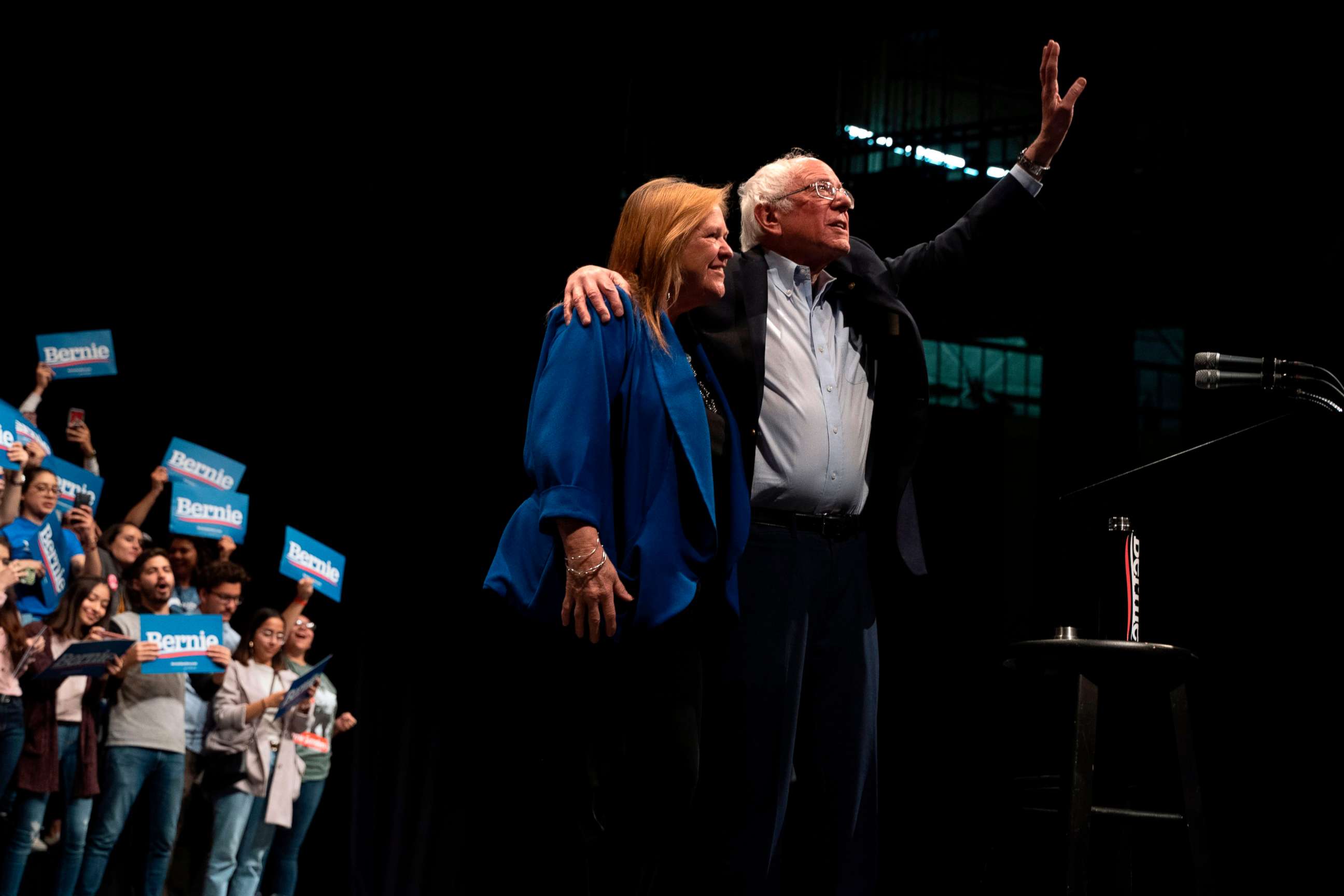
In an interview Saturday, National Security Adviser Robert O’Brien rejected intelligence suggesting that the Russians are trying to get Trump reelected, instead asserting that they favor Sanders.
"That's no surprise," he told George Stephanopoulos, in an interview to air on ABC’s "This Week" Sunday. "He honeymooned in Moscow."
For all the whispers and shouts about Sanders’ status as a self-described "Democratic socialist," and even with a still-crowed field of candidates, there were signs in Saturday’s results suggesting that Sanders is gaining strength.
In Iowa, Sanders had more people show up for him at caucus sites, but lost the delegate race to Buttigieg primarily because more caucus-goers realigned in Buttigieg’s favor, selecting him over Sanders as a backup choice.
In Nevada, though, Sanders appears to have grown his vote share between the two rounds of caucusing -- a sign, perhaps, that more Democrats are growing comfortable with him and his candidacy.
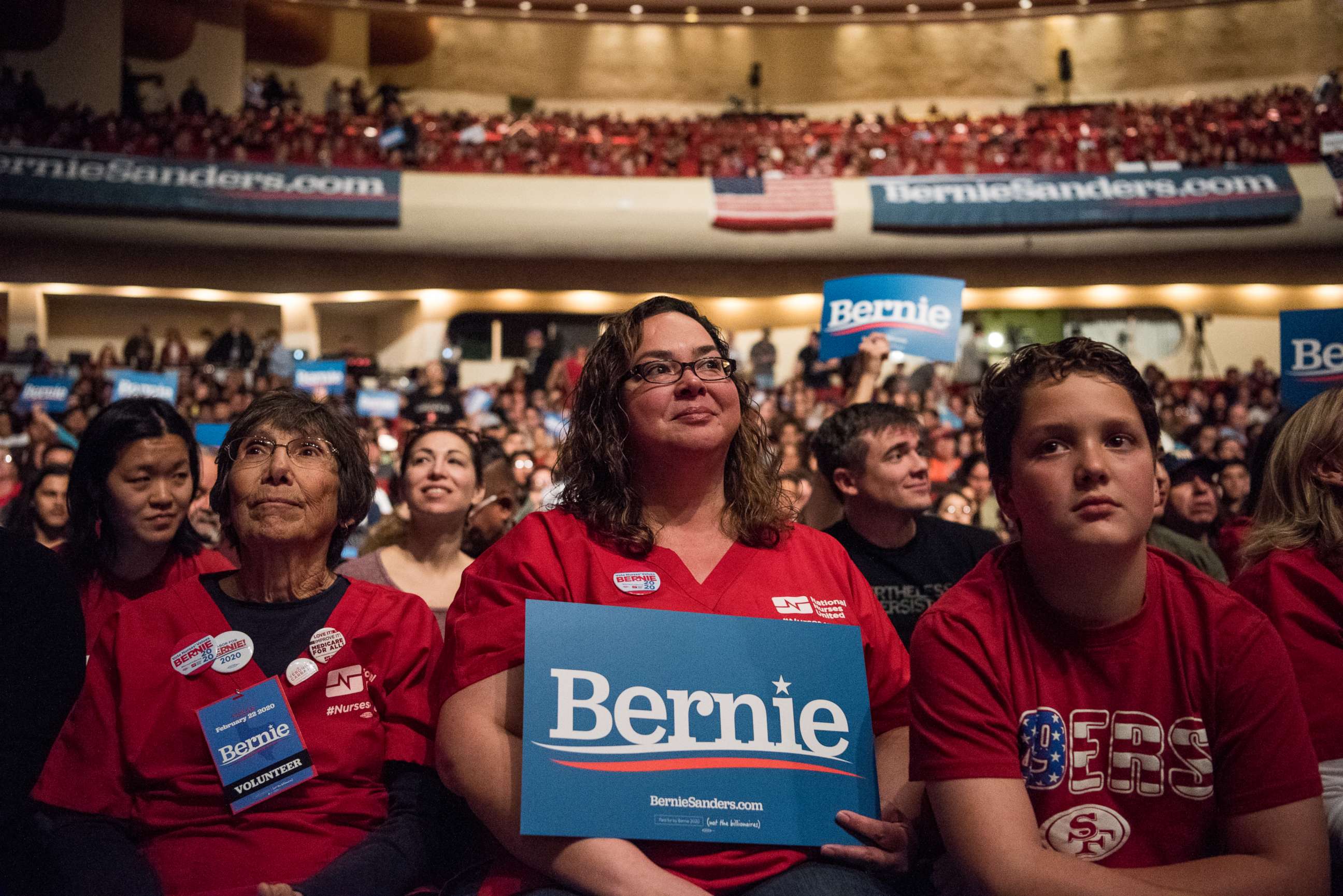
Despite heavy union opposition to Medicare for All, 62% of Nevada caucusgoers said they support a government-run single-payer health care system, according to caucus entrance polls. That suggests a broad endorsement of a signature Sanders policy from rank-and-file Democrats, notwithstanding warnings from Sanders rivals about its inadvisability and impracticality.
Sanders romped among voters under 45, taking 56% of them, while running roughly even among those older than that in Nevada. He also took more than half of the Latino vote -- no small task in a field that counted seven major candidates competing in the caucuses.
Sanders appears to have won only about a quarter of black voters, some 9 points behind Biden, according to entrance polls. That’s better than Sanders performed among black voters last cycle, but it suggests something of a window for rivals next Saturday in South Carolina, where African-Americans are expected to comprise more than 60 percent of the Democratic primary electorate.
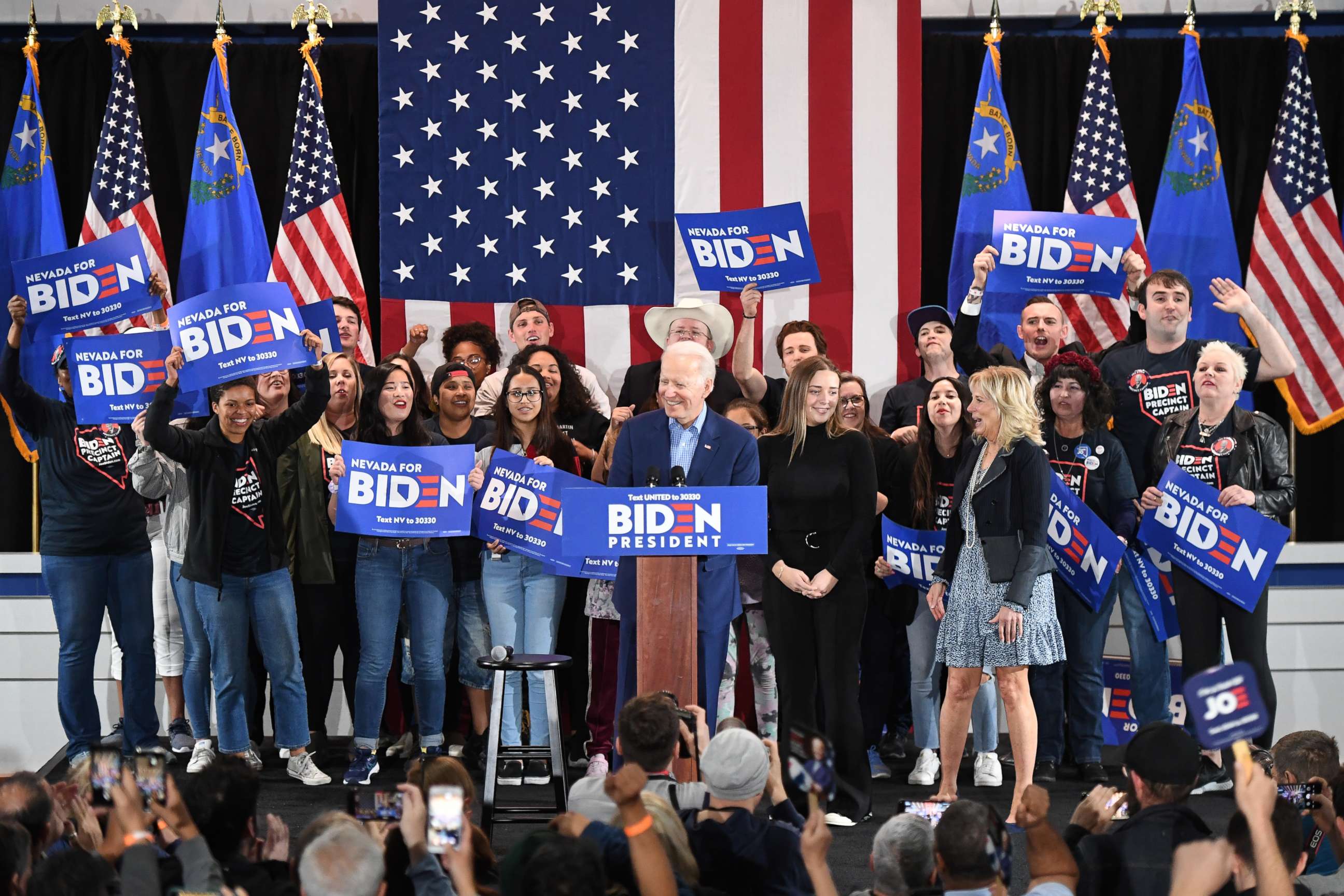
"I'm a Democrat for a simple reason. I ain’t a socialist," Biden said Saturday night, in vowing to storm into South Carolina.
Though the final order of finish wasn’t clear Saturday night, Buttigieg’s campaign quickly claimed to have exceeded expectations, with the former mayor signaling an even more aggressive push to confront Sanders before he runs away with the nomination.
"Sen. Sanders believes in an inflexible, ideological revolution that leaves out most Democrats, not to mention most Americans," he told supporters late Saturday.
As for other Democratic candidates, it’s possible that the large share of early voting didn’t capture recent momentum for Massachusetts Sen. Elizabeth Warren, whose strong debate performance last Wednesday came after some 75,000 Nevadans cast their early votes.
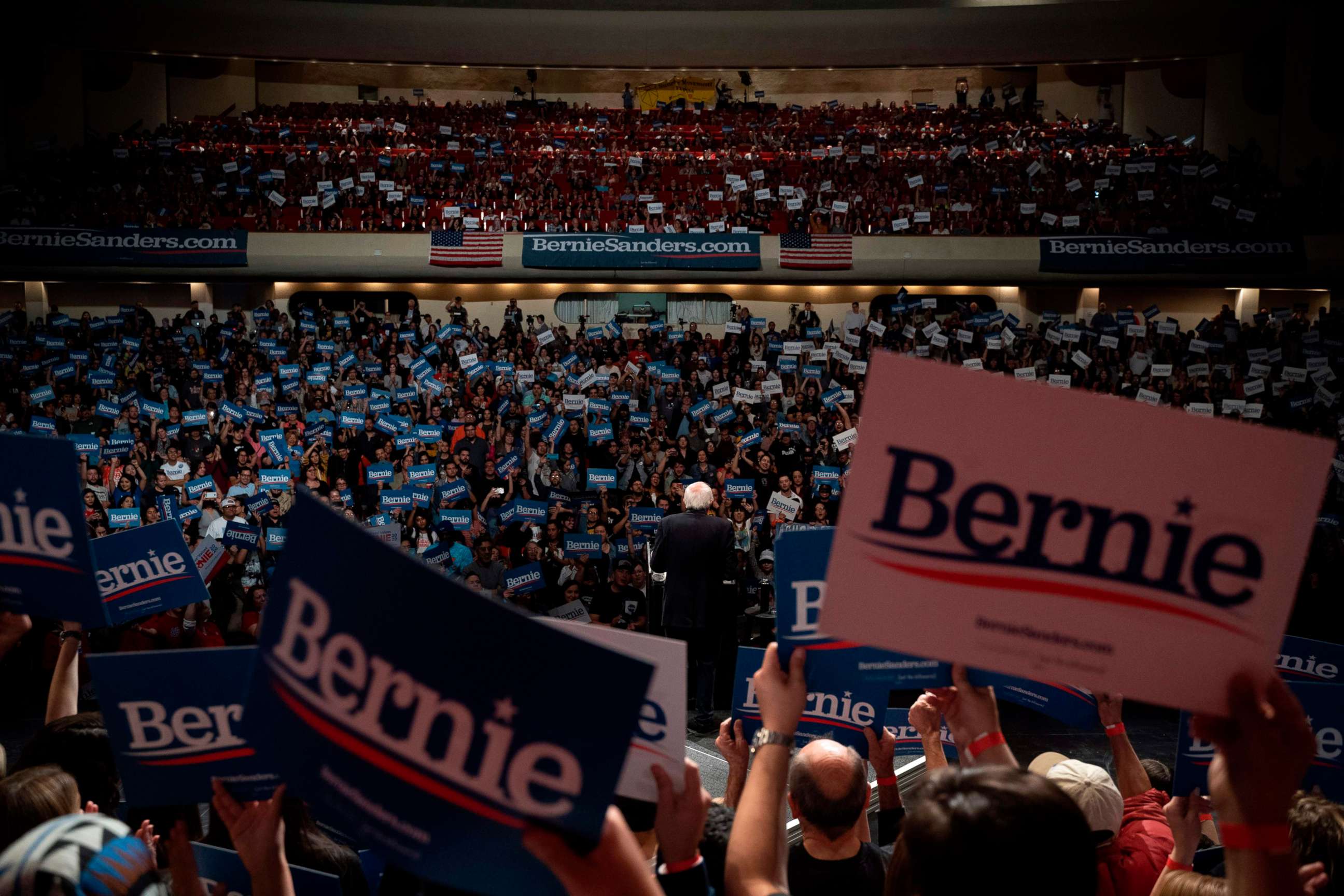
Minnesota Sen. Amy Klobuchar also said she would march on through Super Tuesday, where her home state of Minnesota is among the states voting.
Then there’s Bloomberg, who didn’t compete in Nevada but has set spending records across virtually every other state. His main message is about defeating Trump, but his secondary one has grown stronger and clearer: Sanders, he argues, would ensure defeat for the Democrats.
With another debate on Tuesday, then the last early-state voting on Saturday, there are a few remaining opportunities for Democrats to consolidate early behind a Sanders alternative.
But if their main argument is that Sanders is hijacking a party with a narrow slice of voters, it’s worth noting that his share of the pie appears to be growing.
It may be that Sanders is taking over a party that wants to be taken where he’s long been going.




